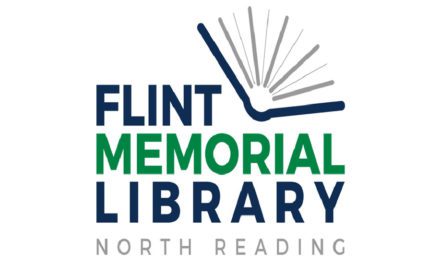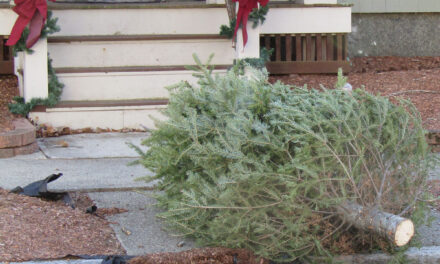Your lawn and wallet will thank you
Published July 25, 2019
By MAUREEN DOHERTY
NORTH READING — Water Superintendent Mark Clark’s crystal ball must have 20/20 vision because he was able to recommend the Select Board vote to bump up the town’s outside watering restrictions from the voluntary Stage 0 level to the Stage 1 level on July 15, just a few days before the region — and 28 other states — were gripped by a heat wave.
For North Reading and the immediate vicinity, that meant temperatures in the mid to upper 90s on Friday, Saturday and Sunday with a heat index that made it feel like it was well into triple digits over the weekend.
Stage 0 is enacted every summer automatically, between May 1 and September 30, with an advisory request to residents and businesses to limit their watering to the odd/even days of the week, based on their street address. There are no fines associated with non-compliance at Stage 0, but the honor system helps stave off the need for towns to enact higher levels of restrictions as the summer gets hotter.
At the current level, Stage 1, the water restriction is mandatory. According to Clark, “Lawn watering is restricted to two times per week. Residents and businesses with odd numbered addresses may water before 7 a.m. and after 7 p.m. on Tuesdays and Fridays. Residents and businesses with even numbered addresses may water before 7 a.m. and after 7 p.m. on Wednesdays and Saturdays only. Lawn watering is not allowed at any time between the hours of 7 a.m. and 7 p.m.”
This was the message that went out this past Monday afternoon on the town’s Reverse 911 system. The water ban is also noted on the town’s readerboard sign which is situation at the foot of the town common at the intersection of Haverhill and Park streets.
Some residents have voiced concern that the town had not informed them of the water restrictions. Clark told the Transcript that fines have not started to be issued because they want to give everyone a reasonable amount of time to get the word out. He believes a week or so is reasonable.
“Typical notification methods are via newspaper, web site notification, sign board and reverse 911 calls,” he said.
At the Select Board meeting, he pointed out that the new smart meters enable the Water Department to monitor water usage more closely and his department would be notifying several dozen homeowners about their water usage patterns as well as the town’s upgrade from the voluntary to mandatory outside water restrictions.
“The letters were one means of notifying those people who – by their watering pattern – were not aware of the restrictions,” Clark told the Transcript. In his opinion, sending out a blanket letter or notice to every resident would not have been productive. He added that there was no mention of fines in the letters and the Select Board has not even discussed the topic of issuing fines based on meter readings obtained through the new metering system.
“The system does clearly show irrigation usage, but the town is not preparing to fine based on this information,” he said.
“People were targeted based on their water use pattern. If everyone gets a letter, they think ‘this does not apply to me’ and it goes into the recycling, and they make no change in their water use patterns. At least this targeted letter mailing caused some reaction, good or bad.”
On social media, several posts were critical of the Big Brother aspect of sending such letters, but he looks at it differently. “I understand the ‘Big Brother’ aspect of this, but the fact is the town has an issue with supplying water if people do not comply with the water restrictions. Watering 5 or 6 or 7 days a week means they were not in compliance with the voluntary (Stage 0) restrictions, so the letter was a means of educating them of the restrictions and asking them to come into compliance,” he said.
Clark has said publicly in the past that the town’s water usage spikes in the summer due to lawn watering.
The town’s Water Department web page notes the following facts:
“In North Reading, the volume of water used on a summer day can be two or more times the volume used on an average winter day. Lawn watering is almost exclusively the cause of this increase in water demand. Given that the summer is the time the Ipswich River is naturally the most stressed, becoming more efficient in our lawn watering practices can provide a significant benefit to the health of the river. The following tips will help you maintain a healthy lawn and garden while conserving water.”
“The amount of water you apply to your lawn is directly related to how deep the roots will grow. The spring is a good time to prepare your lawn for the dryer summer months ahead. By not watering your lawn in the spring, the roots of the grass and turf will grow deeper into the soil. Deep root growth allows the grass to survive dry spells without constant watering. If you water often during the spring, the roots of the grass will stay near the surface. Shallow roots are more likely to dry out in between wettings and, as a result, your grass will go dormant and turn brown.”
“Many other common problems associated with lawns and gardens are the result of over-watering. Over-watering may cause restricted rooting, and result in lawns that are too lush and cannot withstand traffic. Too much watering can also cause fungal growth and nutrient runoff.”
It comes down to changing patterns and adjusting the automatic sprinklers for those who have them.
The Water Department advises: “The basic rule of thumb when watering is water infrequently and deeply. The worst way to water a lawn is to water lightly and often… Daily, light irrigations also promote drought-hardy grasses such as crabgrass.
Clark admits he is not a “lawn watering expert” and he does not water his own lawn. The information found on the town’s webpage comes from those with the expertise in the area, not him personally.
As the man in charge of delivering one of nature’s most precious resources to everyone’s tap 24/7/365, his most important duty is to make sure water is available for sanitation, drinking/cooking, and fighting fires. Lawn watering is a luxury, which is why it is the first area curtailed when supplies are limited in the hotter weather months.
Fines for violators
Those with automated irrigation systems are asked to reprogram their systems to operate in accordance with the Stage 1 restrictions. The town’s bylaws allow violators to be fined $50 for the first violation and $100 for each subsequent violation of these restrictions.
Clark is hopeful that with a bit of public education fines will not be necessary. Reduced water usage not only saves money but helps everyone if it means the town will not have to enact the next level of restrictions.
The water use restrictions are based on drought conditions as follows: Stage 0: Normal; Stage 1: Advisory; Stage II: Watch; Stage III: Warning and Stage IV: Emergency.
At Stage II lawn watering is reduced to one day per week; Stage III limits watering to hand-held only between 7-10 p.m. for shrubs and gardens only with lawn water prohibited. In Stage IV emergencies, no outdoor watering is allowed.
After reading what bans could come next, being restricted to two days per week with a Stage 1 ban seems not so bad after all.




